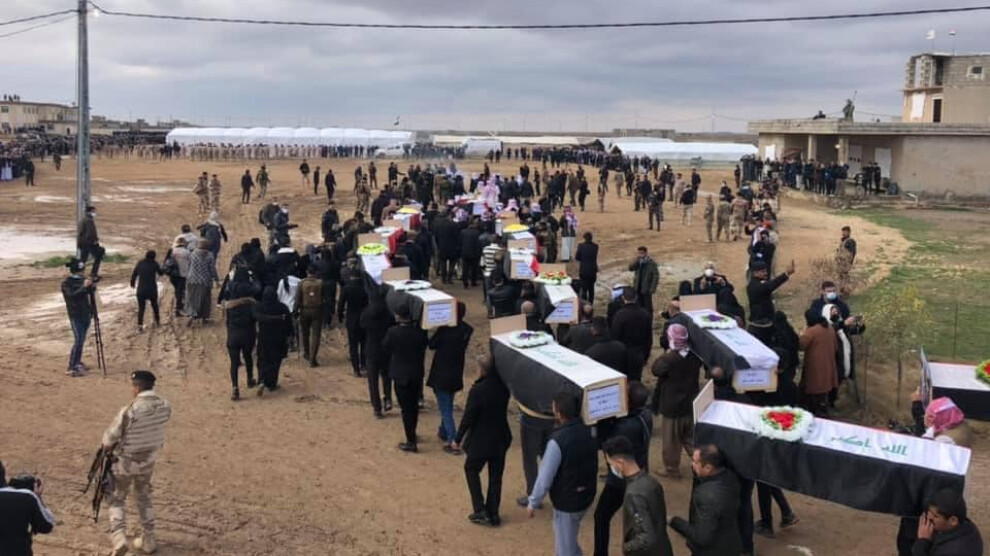Remains of 104 Yazidi victims buried in Kocho
The remains of 104 Yazidi victims of ISIS massacre in Kocho, Shengal were buried in the village cemetery within a religious ceremony specialized for Yazidis.
The remains of 104 Yazidi victims of ISIS massacre in Kocho, Shengal were buried in the village cemetery within a religious ceremony specialized for Yazidis.

Governmental and international teams specialized in searching and uncovering mass graves were able to find 18 mass graves in the village of Kocho in Shengal (Sinjar region. The mass graves contained the remains of those who were killed at the hands of ISIS mercenaries on August 15, 2014, 12 days after the onslaught on Shengal province.
After identifying the 104 victims, a religious ceremony was held today in the village of Kocho, participated by dozens of clerics, fighters from Shengal Resistance Units (YBŞ) and the Shengal Women’s Units (YJŞ), representatives of the Democratic Autonomous Administration of Shengal, Yazidi Freedom and Democracy Party, Yazidi Women's Movement and representatives of civil institutions, in addition to thousands of people from Shengal province and Iraqi officials.
The remains of the victims were buried in a special cemetery held in the Kocho Victims'Cemetery in the village.
Village almost completely wiped out by ISIS
The village of Kocho was almost completely wiped out by ISIS in 2014. More than 1,800 people lived in the village at the time of the attack on Shengal. On 15 August ISIS carried out a massacre killing around 600 Yazidi young people and men for refusing to convert to Islam. Almost 700 women and around 300 children were abducted from Kocho and turned into sex slaves or trained to be child soldiers. While a few have escaped and others have been rescued by the Syrian Democratic Forces (SDF) and the international anti-ISIS coalition, around 400 people from Kocho are still missing.
Up to 200 mass graves in Shengal
In the region of Shengal, there are at least 200 mass graves in which some 12,000 people are buried. In Kocho alone seventeen such graves have been opened by the end of 2020. The first mass grave was uncovered in March 2019. The exhumations there are carried out by the UNITAD investigation team (United Nations Investigative Team to Promote Accountability for Crimes Committed by Daesh / ISIL) under the leadership of Karim Asad Ahmad Khan, a British human rights lawyer.